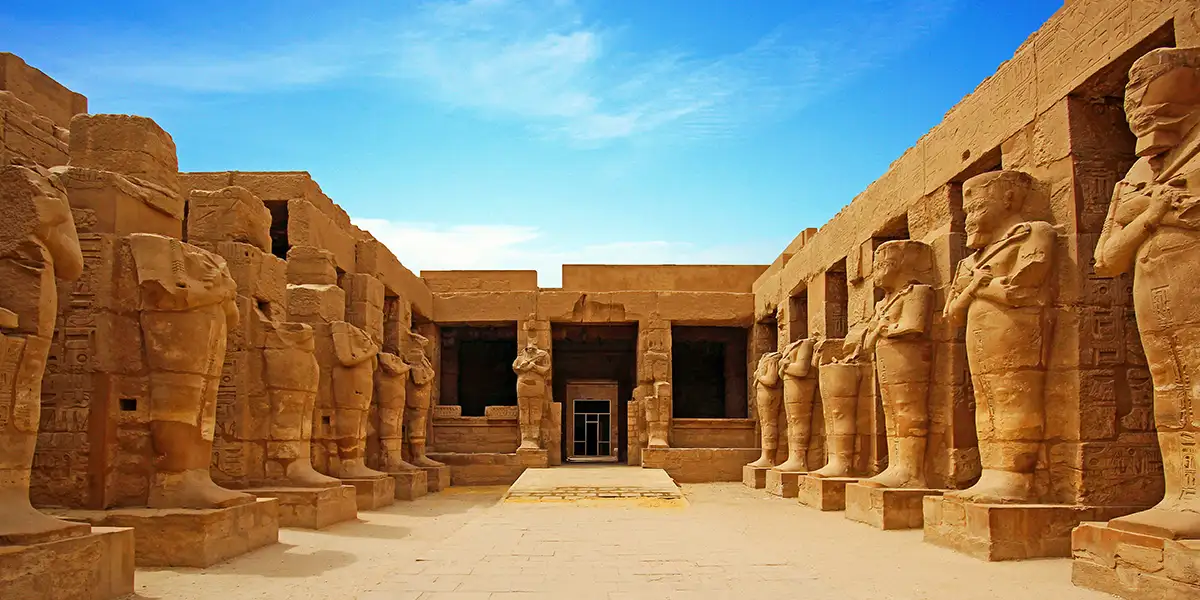The Nile River has long captivated the imagination of travellers and historians alike, serving as a lifeline to ancient civilisations and a symbol of timeless beauty. Stretching over 4132 miles, it is the longest river in the world, weaving its way through eleven countries before emptying into the Mediterranean Sea. Its historical significance cannot be overstated; it has been central to Egyptian culture and history for millennia. The banks of the Nile have witnessed the rise and fall of pharaohs, with their monumental legacies still standing today in the form of awe-inspiring pyramids and temples.
As we look ahead to Nile Cruises 2025, there is renewed interest in exploring this majestic river as part of a spiritual journey that connects travellers with its rich past. Cruising along its tranquil waters offers an unparalleled opportunity to delve into ancient Egyptian culture while enjoying modern comforts. From Luxor’s Valley of the Kings to Aswan’s serene landscapes, each stop along the cruise presents a unique glimpse into history that remains vibrant and alive.
Online travel agencies like Travelodeal are making these experiences more accessible than ever by offering tailored packages catering to diverse interests and budgets. Whether you’re drawn by the allure of historical exploration or seeking a peaceful retreat amidst stunning natural beauty, there is something profoundly enriching about embarking on a journey along this legendary river. The Nile continues to enchant those who seek travel and immersion into one of humanity’s most enduring stories.
The Historical Significance of the Nile
The Nile River has long been the lifeblood of ancient Egypt, serving as a crucial artery that supported one of history’s most remarkable civilisations. The Nile River has been central to the development and prosperity of Egyptian civilisation. Life along the Nile was vibrant and flourishing; its predictable flooding cycles provided fertile soil for agriculture, sustaining communities and allowing for urbanisation.
The river’s significance extended beyond mere sustenance; it was also integral to culture and religion. Many historical sites on the Nile bear testimony to its importance. Temples like Karnak and Luxor were constructed along its banks, celebrating Gods believed to control this mighty waterway. The Nile facilitated trade and communication across regions, linking various parts of Egypt and serving as a conduit for ideas.
Moreover, life along the Nile influenced social structures within ancient Egypt. The river’s abundance enabled a surplus economy that allowed artisanship and specialised professions to flourish. This economic stability laid the groundwork for monumental architectural achievements such as pyramids and tombs that continue to captivate us today.
In essence, without the Nile, ancient Egyptian civilisation might not have reached such heights of sophistication and influence. Its waters nurtured an empire whose echoes still resonate through time—an enduring testament to how geography can shape human destiny.
Cultural Insights Gained from a Journey Downstream
Embarking on a Nile River Cruise offers an unparalleled opportunity to delve into the rich tapestry of cultural experiences Egypt offers. As you journey downstream, each port of call unveils layers of traditional practices preserved through generations. From Aswan’s bustling markets to Luxor’s serene temples, every stop is a gateway to understanding the local customs and traditions that define the region.
One cannot help but be captivated by Egyptian folklore, which is deeply intertwined with daily life along the Nile. Stories passed down through oral tradition reveal ancient beliefs and values, offering insight into how communities have historically interacted with this life-giving river. Visitors are often invited to partake in traditional ceremonies and festivities, providing a firsthand look at age-old rituals still practised today.
Moreover, engaging with locals during your cruise enriches your journey with personal narratives and shared histories. Whether learning about old agricultural methods or witnessing artisanal crafts made using techniques unchanged for centuries, these experiences offer a profound connection to Egypt’s cultural heritage. A Nile River Cruise is a voyage through breathtaking landscapes and an enlightening exploration of human history and cultural continuity.
The Spiritual Connection to Ancient Wisdom
Embarking on a spiritual journey along the Nile River Cruise offers an unparalleled opportunity to connect with the ancient wisdom of Egypt’s past. The Nile, often called the lifeblood of Egypt, has held profound spiritual significance for millennia. As you glide along its serene waters, you’ll find yourself tracing the footsteps of pharaohs and sages who once revered this mighty river as a divine force.
The spiritual journey on the Nile is not merely about witnessing breathtaking landscapes; it’s about immersing oneself in a legacy that speaks of harmony between humanity and nature. The temples and monuments that line its banks are more than architectural marvels; they are testaments to ancient Egyptians’ deep understanding of cosmic order and their quest for eternal truth.
Each stop along your cruise presents an opportunity to delve into stories imbued with spiritual richness. Whether exploring the sacred grounds of Karnak or absorbing the mystique surrounding Luxor, these sites offer insights into a civilisation that viewed life as an intricate tapestry woven with divine threads.
By engaging with this ancient wisdom from Egypt’s past, travellers can gain new perspectives on their own lives, drawing inspiration from a culture that values balance, respect for natural cycles, and reverence for all living things. The spiritual significance of the Nile continues to echo through time, inviting those who journey upon it to discover deeper meanings within themselves.
Modern Reflections
Exploring ancient Egypt offers a fascinating glimpse into a civilisation renowned for its innovations and wisdom. The lessons from ancient Egypt for modern life are manifold, providing insights into sustainability, community, and holistic living that remain relevant today. For instance, the Egyptians’ profound respect for the environment is evident in their sustainable agricultural practices along the Nile River. We can learn to balance technological advancement with ecological responsibility by applying ancient wisdom today.
Travelling to such historical sites enriches our understanding of past cultures and allows us to connect with them on a deeper level. This connection between past and present cultures through travel fosters a greater appreciation of our shared human heritage and encourages us to integrate age-old wisdom into contemporary life. Whether adopting their communal approach or embracing their architectural ingenuity, these ancient teachings offer valuable perspectives that can enhance our modern existence.


